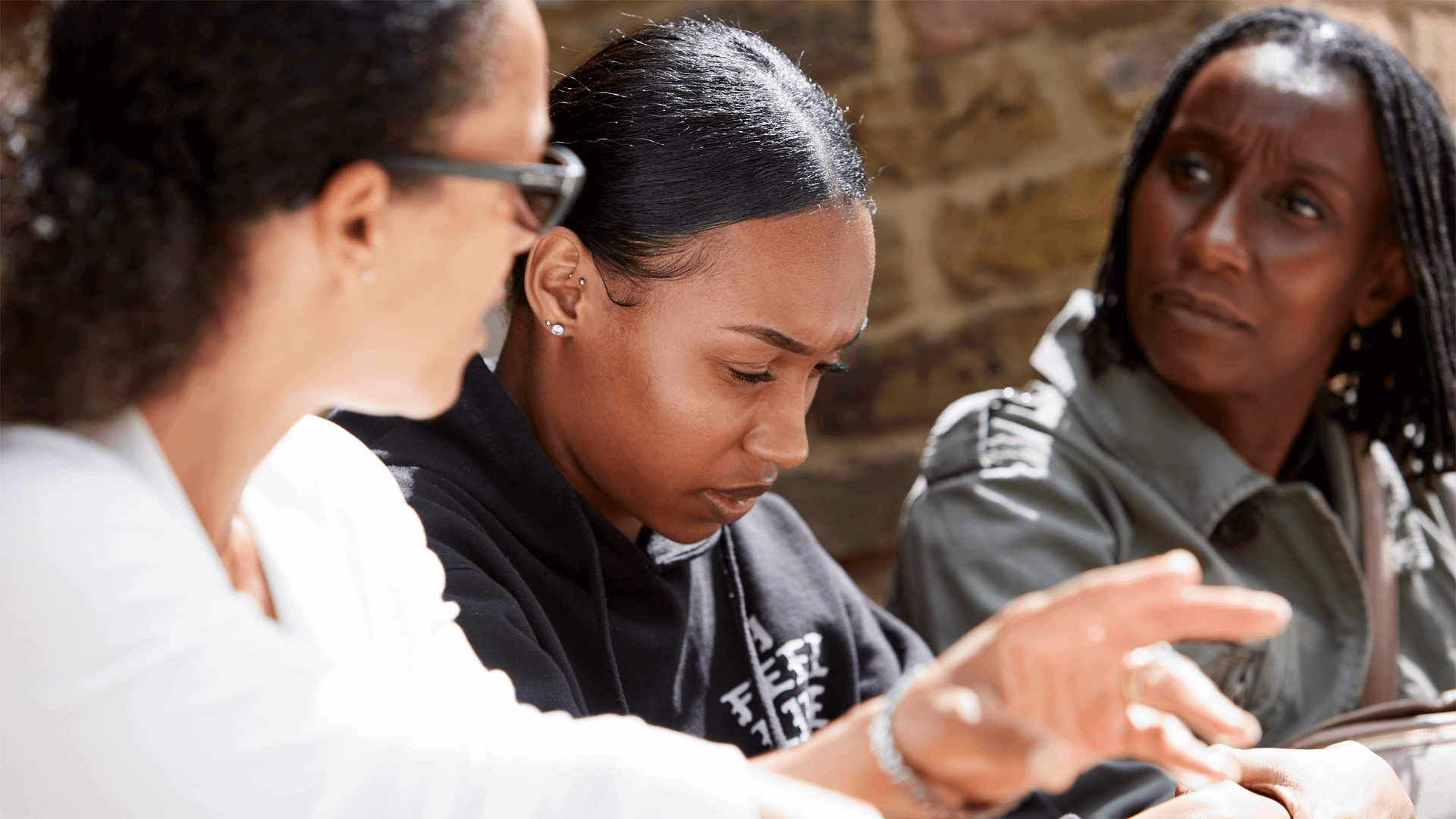Topics mentioned: sleep problems, reaching out for help, panic attacks
About: For Sam, nightmares and panic attacks really impact his mental health. He shares how speaking up and self-compassion are helping him find relief and hope.
As is the case with myself, a lot of my negative thoughts come from fear of judgement. But know this - you are not your thoughts.
It’s only when you begin to have issues with your sleep that you realise how important it is.
For the last two years, I’ve had on and off troubles with nightmares. These nightmares tend to involve the same people in the same places with the same result. What happens in these nightmares have an element of truth, gradually twisted to result in the worst possible outcome.
I wake up multiple times per night, starting at around 4:00am. I jolt awake, remembering the fictional narrative that played out. I lay there, heart thumping, head pounding, room spinning, body shaking. The pain in my chest is unbearable, causing a breathlessness and I’m unable to speak. A fatigue sweeps over body and I can’t move. So, I have to stay still, convince myself that what I saw wasn’t real and try not to cry. It feels like I’ve tried everything to prevent my nightmares from happening. I would give anything for them to stop.
A lack of sleep has damaged my mental health, but I have to believe that one day I will be able to sleep fine again.
Sharing my experiences and writing down my emotions have helped to ease the pain my sleep has caused. I want to share a list of methods I’ve used to try and help anyone going through the same problems as myself, but struggle to articulate it.
Talk about your nightmares with someone you trust
The number one method I have used to help address my problems with sleep is talking to people I trust about it.
You don’t have to share every detail about what appears in your nightmares, but explaining the problems you have might help to lighten the burden. As is the case with myself, a lot of my negative thoughts come from fear of judgement. But know this - you are not your thoughts.
The way you view yourself, or what you think other people might say about you, often isn’t the case. We paint false narratives in our heads about ourselves - much like the dreams that play out. They’re not real.
Prior to writing this blog, there are three people who know about my nightmares. Two are my parents, the other appears in my nightmares the most.

I have called my mum in the middle of the night, crying into the phone because I can’t make sense of the nightmare I’d just experienced. There have also been times where my parents have consoled me in my room as I catch my breath after my latest nocturnal panic attack.
Because my parents have witnessed me go through these motions many times, they know how to address it. They calm me down, not by asking loads of questions, but providing words of comfort and reassurance that my feelings will pass. We talk about it the following morning, when I’m in a calmer state and ready to articulate my emotions.
This can take time to do, and it’s fine if you get upset initially. But in time, the more you try to share your experiences with the people you trust, the easier it becomes.
Journal what appears in your nightmares
Like many people in my situation, I have spent time scouring the internet looking to extract any meaning from my dreams. I write down what happens in the notes app on my phone, usually in bullet-point form. I then look at it later in the day, trying to see if what I’ve found on the internet measures up to what played out the night before.
Honestly, the internet hasn’t helped much, but writing down what’s happened in my dreams has. Journalling for mental health is commonly advised and for me, journalling about your sleep can be equally as helpful. Writing down experiences on paper or on your phone can help to make sense of it all, because when it’s there in front of you instead of in your head, it can be easier to understand and interpret.
If you don’t feel comfortable speaking about your nightmares to someone straight away, then you can use this step first - see how it goes. Then, speak to someone and you’ll be armed with notes to fall back on if you struggle to find the right words.
Remember, your nightmares are not real
My nightmares mainly revolve around traumatic experiences from my past. The emotions I feel in my dreams are similar to the emotions I felt at that time – that’s why it’s hard to distinguish the truth from reality.
The narratives revolve around rejection, helplessness, death and fear. Even if I have a good day, the demons at night send me back to a time where I felt so low. It’s probably because I’m still not over events that happened, so acknowledging what’s there is important to putting your mind at rest.
Take a moment to yourself when you wake up in the morning, acknowledge the events of your nightmare, journal and/or talk to who you trust about it and know it wasn’t real.
To repeat a phrase I used at the top: you are not your own thoughts.
Take a moment to yourself when you wake up in the morning, acknowledge the events of your nightmare, journal and/or talk to who you trust about it and know it wasn’t real.
More information and advice
We have tips and advice to help you find the support you need. Take a look at our guides.
Where to get help
However you're feeling, there are people who can help you if you are struggling. Here are some services that can support you.
-
No Panic
Supports people struggling with panic attacks, phobias, obsessive compulsive disorder (OCD) and other anxiety-related issues - and provides support and information for their carers.
Call 01952 680835 for a recorded breathing exercise to help you through a panic attack (available 24/7).
- Opening times:
- 10am - 10pm, 365 days a year
-
Samaritans
Whatever you're going through, you can contact the Samaritans for support. N.B. This is a listening service and does not offer advice or intervention.
- Opening times:
- 24/7
-
Childline
If you’re under 19 you can confidentially call, chat online or email about any problem big or small.
Sign up for a free Childline locker (real name or email address not needed) to use their free 1-2-1 counsellor chat and email support service.
Can provide a BSL interpreter if you are deaf or hearing-impaired.
Hosts online message boards where you can share your experiences, have fun and get support from other young people in similar situations.
- Opening times:
- 24/7






